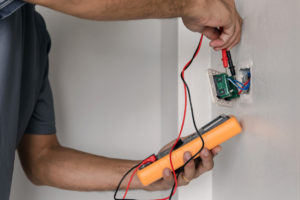Everything You Need to Know About Electric Home Safety Inspections
If you are buying a home, your home is more than 40 years old, you are installing a large new appliance, or your home is being renovated, then you may need an electric home safety inspection. If it has been a while since you have gone through this, read on to learn what you can expect.
Electric Panels Will Be Inspected
Think of your electric panels as nerve central in your house. Your electric panel could be in your garage, basement, utility room, or elsewhere in your home. Wherever it is located, the electrical will check the fuses and circuit breakers to assure they are connected correctly, are not damaged, are not too old, have not rusted, and are not otherwise inadequate. They will also check to ensure that the panel offers enough electrical capacity for the home and recommended electric panel upgrades if they feel it is necessary.
Electrical Wiring Will Be Inspected
All visible wiring will be inspected to ensure it is up to code and does not have exposed slices. The inspector will look to ensure cables are both protected and secured. If the home is older, there may be additional issues to double-check such as knob and tube wiring and aluminum cable for branch circuits. These can pose safety issues and make it hard to sell and insure the home.
Special Care Will Be Taken to Look at Electrical Systems in Wet Areas of the Home
Any type of electrical system that is close to water will need to be closely inspected and perhaps updated. This generally applies to any room with a sink, such as kitchens, bathrooms, laundry rooms, and workshops. These outlets are required to have GFCI that cut off they are exposed to water. If they are already installed, the inspector will test to ensure they are working correctly.
Lighting, Outlets, and Switches Will Be Looked At
The inspector will check all lights – both indoor lighting and outdoor lighting – along with switches and outlets to ensure everything is grounded properly. If an outlet is loose, warm, or hums, then this is a sign that something needs to be done. If lights flicker or there are sparks from the outlets, then repairs are needed as well.
Older Homes May Have Additional Requirements
A homeowner with an older home may have additional factors considered. For example, the inspector will look for issues with surge protectors, electrical issues that could injure children, fire and shock hazards, space heater issues, and the age and quality of smoke detectors and carbon monoxide detectors.
If your home is about to be inspected, it may be to your benefit to call your local electrician to inspect your home. We can advise you of any issues that may raise red flags and offer solutions to those issues. Contact Sonner Electric at 661-728-0126 to learn more.


